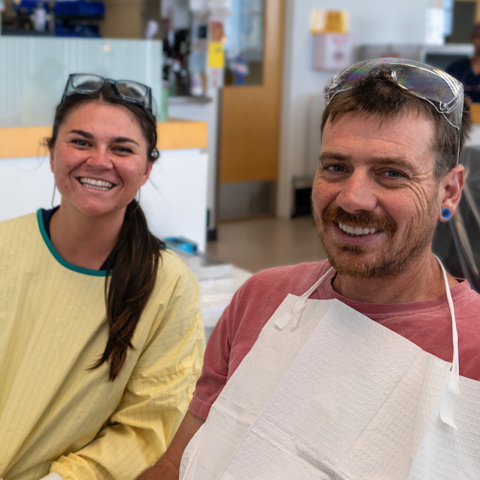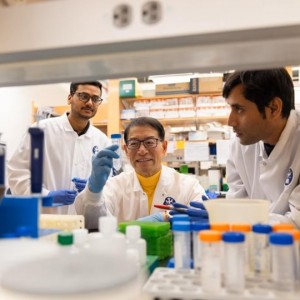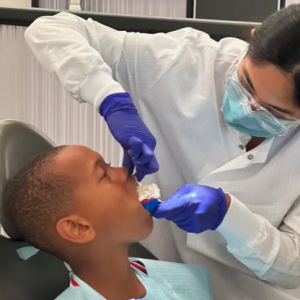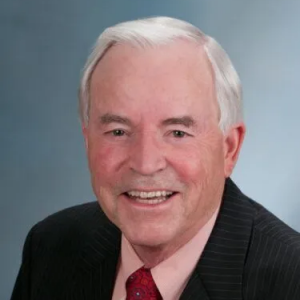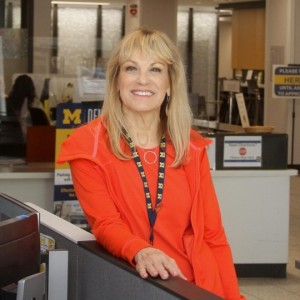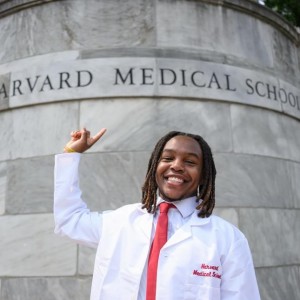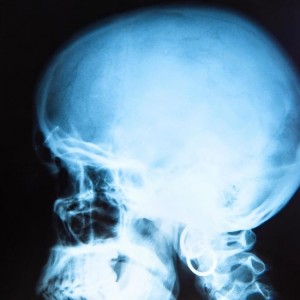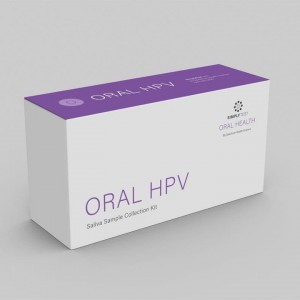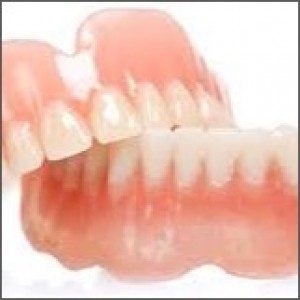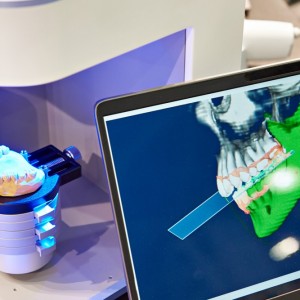
What It’s Like to Get Dentures at a Dental School
When James Wyatt came to the University of Colorado School of Dental Medicine (CU SDM), he had just a few remaining teeth — and even fewer options.
“I had partial dentures and six natural teeth left,” he said. “I hadn’t taken care of my teeth before, and unfortunately I didn’t care of those either, so we had to pull them and start fresh.”
Wyatt, a longtime Colorado resident and flooring contractor with a passion for pottery, was referred to CU Dental through a Native American health clinic. What he found was a slower but more personalized path to good oral health.
Why choose a dental school?
For patients like Wyatt, the CU Dental clinics offer an appealing balance of affordability, access and attentive care.
“I’ve been low-income most of my life,” he said. “Coming here meant I could finally take care of things I’d been putting off.”
The Dental Team Care Clinic, where students provide dental care under faculty supervision, offers services at reduced rates, and accepts Health First Colorado (formerly Medicaid). Wyatt originally came to the school six years ago for partial dentures and returned when his dental issues worsened.
His care was managed by Summer Booth, a fourth-year dental student, who took on his case in February. Over the next few months, they worked together through extractions, impressions, fittings and adjustments to create a new, full set of complete dentures.
Wyatt says the biggest difference between CU Dental and a private practice is time.
“You’ve got to be patient,” he said. “They told me up front to expect two- or three-hour appointments.”
But the extended appointments come with deeper communication and thorough care.
“I find it fascinating,” Wyatt said. “You’re not just getting a dentist who tells you what to do. You’re getting someone who’s questioning everything they do, as they do it, to understand why and figure out if there’s a better way. I enjoy that.”
Booth echoed that sentiment. “As students, we’re learning every step of the way, not only the technical aspects of dental care but also how to make patients feel comfortable,” she said. “That matters just as much as the clinical work.”
A creative, cost-saving solution
One of the standout moments in Wyatt’s treatment came when Booth suggested a non-traditional approach to the dentures process.
Because insurance only covered one set of dentures every five years, Booth found a workaround: she repurposed Wyatt’s existing partials to build his interim full dentures.
“We called them Frankensteins,” Wyatt said, laughing. “She took the old partial, added new teeth to fill in the gaps and made it work.”
The top partial was in relatively good shape, so Booth kept the structure and added to it. The lower one was partially broken, but still usable. With guidance from faculty, she designed and fabricated the temporary dentures herself for Wyatt to use while he healed from extractions.
“It wasn’t standard,” Booth said. “But it was safe, and it gave us a way to make him comfortable while we worked toward a final set.”
Regaining confidence — and a new smile
Adapting to complete dentures has taken time, Wyatt admits.
“Speaking, chewing — it’s like learning everything all over again,” he said.
Despite the adjustment period, Wyatt is grateful for the care he received. And he hasn’t lost his sense of humor.
“I tried to mess with the first set myself to make them more comfortable,” he said. “I do pottery, so I figured, how different could it be?” Booth quickly discouraged any do-it-yourself dental work, but she appreciated his hands-on curiosity.
Advice for others: “If you have the time, it’s worth it.”
For anyone considering getting their dental care through a student clinic, Wyatt’s advice is clear: “If you have the time, I’d recommend it. You’ll save money, and you’ll be taken care of.”
His case is just one example of how CU Dental’s clinics are shaping the future of dentistry — one smile, one student and one patient at a time.
Author: Laura Ramsey
Source: https://news.cuanschutz.edu/
 Related articles
Related articles
Editorials 07 August 2025
Researchers are developing ‘smart’ implants that would provide a more natural feel while chewing or talking
Editorials 24 September 2025
Dental school’s free mouthguard clinic draws young athletes from around southeast Michigan
It’s not easy being 9 years old and sitting still for three minutes in a dental chair with a mouth full of mushy material, but that’s what Makai Carter and about 60 other area athletes did early...
Editorials 03 September 2025
Dr. David Turpin—who served as a part-time affiliate professor in the UW Department of Orthodontics for an extraordinary 48 years—passed away peacefully on May 29, at the age of 87.
Editorials 02 September 2025
Staff Profile Q&A: Ellen Looker – The friendly face at the dental school entrance
A smiling Ellen Looker is usually the first person a School of Dentistry patient meets at the main entrance when they arrive for their appointment.
Editorials 29 August 2025
 Read more
Read more
Much like EMTs rushing to the scene after an accident, stem cells hurry to the site of a skull fracture to start mending the damage. A new finding has uncovered the signaling mechanism that triggers...
Products 05 November 2025
SimplyTest has launched a groundbreaking saliva-based test to detect high-risk strains of oral human papillomavirus (HPV), a major cause of oropharyngeal cancers.
News 05 November 2025
Perimetrics, Inc., a dental technology company pioneering quantitative diagnostics, announced today that the U.S. Food and Drug Administration (FDA) has granted clearance for the InnerView...
News 05 November 2025
On October 15, open enrollment for Medicare began nationwide. Hundreds of thousands of seniors in New Jersey will once again face the challenge of finding the right Medicare coverage, including the...
Digital Dentistry 04 November 2025
Digitalisation is an expanding field in dentistry and implementation of digital teaching methods in dental education is an essential part of modern education.


